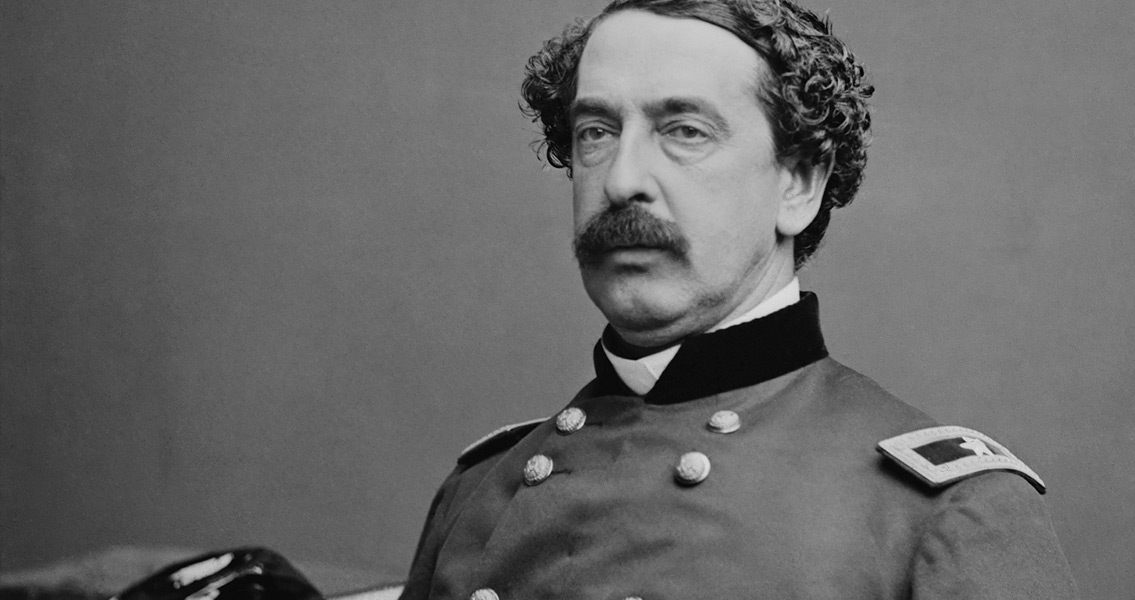<![CDATA[An eight paragraph memo written on 30th December 1907 instigated a myth about the history of baseball which persists in some quarters to this day. Marking the culmination of a two year long quest to discover the origins of what is possibly the USA's most iconic sport, the memo declared that baseball was the creation of Abner Doubleday. "the first scheme for playing it [baseball], according to the best evidence obtainable to date, was devised by Abner Doubleday at Cooperstown, N.Y. in 1839", read the memo by Abraham Mills, the leader of the commission into the history of baseball. Doubleday's name has since become synonymous with baseball, the outcome of the Abraham Mills Commission widely accepted for decades and the story about the sport's origins passing down from generation to generation. Historians however, have frequently debunked the 'Doubleday Myth'. The first signs that Doubleday was not the creator of baseball can be seen in the methods used by the Abraham Mills Commission itself. Set up in 1905, the commission led by former National League President Mills sought to answer a long standing controversy in the history of the sport, one which went straight to the heart of the US' cultural identity. The British born Henry Chadwick, a renowned baseball promoter, claimed that the game had evolved from British sports such as rounders and cricket. Albert Goodwill Spalding, one of the great pitchers of the 1870s, claimed it was a purely American sport, invented in the USA by an American. A campaign was launched in the nation's media to gather as much information as possible about the sport's origins, with advertisements posted in newspapers calling people to come forward with any information they had about baseball's history. A 71 year old mining engineer named Abner Graves responded to the call, writing a letter to the Akron Beacon Journal describing how Doubleday had invented baseball. Graves explained how Doubleday had improved on Town Ball, a ball game played between school pupils. The mining engineer claimed to have been present in Cooperstown, New York when Doubleday drew out a diagram of a diamond shaped field, and explained to a team of players the rules for a new game he dubbed 'Base Ball'. Graves later claimed to have actually played in that game, although this boast was missing from his initial testimony. Doubleday was a convenient choice as the inventor of baseball, tying it closely to American identity. As well as being born in the USA, he was a hero of the US Civil War, a Union General believed to have fired the first shot at the Confederacy during the defence of Fort Sumter. Unfortunately, the Abraham Mills Commission had failed to properly investigate Graves' testimony. Firstly, Doubleday was stationed at New Point in 1839, the year Graves claimed he witnessed the invention of baseball in Cooperstown, New York. Secondly, Graves himself would have been only five years old in 1839, a glaring fact which surely brings his testimony into question but was overlooked by the commission. Also hugely significant is the fact Doubleday himself never actually claimed to have invented the game, not evening mentioning it in his diaries. In reality, baseball was not invented by one individual, and games which could be seen as precursors to it were being played in North America as early as the eighteenth century. Although the Abraham Mills Commission's findings were accepted for a longtime, they have increasingly been debunked. The game evolved through the centuries, its origins likely coming from British sports but its unique style developing as it was formalised into the form it has today. A host of figures added specific elements to the game which saw it become modern baseball. Alexander Cartwright, a bank clerk, codified many of the game's rules in the 1840s. Henry Chadwick meanwhile, pioneered many of baseball's scoring and statistic systems. Countless others made contributions as baseball developed. The Doubleday Myth persists in some quarters: Cooperstown is still considered the home of baseball, and as recently as 2010, Major League Baseball commissioner Bud Selig publicly declared his belief that Doubleday was the father of baseball. This persistence however, perhaps obscures the truly fascinating reality of the sport's development - a national game which moved well beyond its origins in Europe and gradually forged its own identity in parallel with the USA itself. ]]>
Doubleday Myth Started By the Abraham Mills Commission
